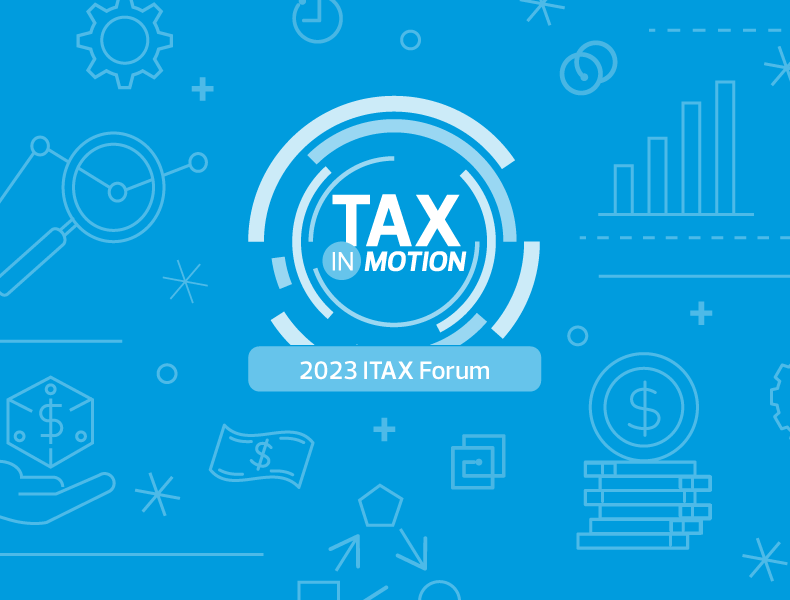Advance pricing agreements: Enhancing a preferred dispute mechanism
APAs are agreements that allow taxpayers to preemptively agree with one or more taxing authorities on arm’s-length prices for related-party transactions. An APA is a proactive, voluntary approach whereby a U.S. or foreign multinational enterprise (MNE) taxpayer can gain greater certainty regarding their tax exposure and mitigate costs associated with transfer pricing (TP) documentation, audit defense, penalties, or double taxation. An APA can be a highly effective TP tool, particularly given economic uncertainties and increased scrutiny from tax authorities in many jurisdictions. In recent years, taxpayers have increasingly utilized APAs as their preferred TP dispute mechanism.
The IRS’ APMA program negotiates and administrates APAs. Rev. Proc. 2015-41 outlines the procedures for seeking an APA. Under section 3.02(1) of Rev. Proc. 2015-41, APMA invites, and in some cases requires, the taxpayer to meet with APMA in a pre-filing conference prior to filing an APA request. A pre-filing memorandum is often simultaneously submitted and sometimes required.
Pre-filing requirements aim to make the APA process more effective and efficient. They allow an avenue for both the taxpayer and APMA to ask questions and provide feedback (e.g., a preliminary opinion) about the transactions prior to undergoing a lengthy and expensive formal APA submission process. Even prior to the new interim guidance, APMA has encouraged pre-filing submissions for APA requests, even if not required under Rev. Proc. 2015-41.
The LB&I has recognized a need for procedural change as part of its responsibilities to implement effective tax administration and to improve taxpayer service. To enhance the early phases of the APA process, the acting director of Treaty and Transfer Pricing Operations on April 25, 2023, issued the Memorandum for Treaty and Transfer Pricing Operations Employees to notify IRS employees of new internal procedures. While some of the procedures had been previously implemented in practice, APMA must now follow the process outlined in the interim guidance for all pre-filing memoranda, APA requests, and APA renewal requests.
New procedures for early phases
Pre-file procedural changes
The new procedures focus on the early phases of the APA process, meaning prior to acceptance into the APA program. Beginning with the pre-filing stage, the interim guidance outlines the procedures IRS employees must follow while performing a review of the pre-filing material submitted. It should be noted that the interim guidance does not change the existing requirements under sections 3.02(4) and (5) of Rev. Proc. 2015-41 with respect to when a pre-filing memorandum and pre-filing conference are mandatory.
The new procedures assign a team consisting of an APMA team leader or economist and a member of the Transfer Pricing Risk Assessment (TPRA) team to perform a review of a taxpayer’s pre-filing memorandum. The TPRA team is involved to consider alternative workstreams to an APA submission. Together, the team will send a recommendation for taxpayer action to the APMA frontline manager (FLM) on whether the taxpayer should:
- Proceed with the submission of an APA request
- Consider an alternative workstream (e.g., International Compliance Assurance Program (ICAP), joint audit) as a more effective route to tax certainty
- Provide additional information to APMA about the proposed APA
During this process, the APMA statute program manager will also confirm the statute of limitations period for the proposed APA term for the team leader and FLM. The APMA FLM will then make and orally communicate a decision to the taxpayer of the recommended action. The pre-filing memorandum review will typically take less than four weeks from the date of the pre-filing memorandum or the date when additional information requested by APMA is submitted to APMA, whichever is later.
While evaluating the pre-filing memorandum for suitability for the APA program or an alternative workstream, the team will consider certain facts and circumstances of the proposed APA case, including:
- Whether the proposed covered transactions rise to a level of significance that justifies the use of resources necessary to engage in and complete an APA
- Whether the proposed APA term, including rollback years, would meet the requirements of Rev. Proc. 2015-41 or successor guidance regarding the remaining period of limitations for assessment of tax for each proposed APA year
- For bilateral or multilateral cases, whether there is a high probability that TP compliance will be significantly enhanced by engaging with an income tax treaty partner(s) in an APA negotiation
- For multilateral cases, whether the applicable international exchange agreements, including applicable income tax treaties, provide for the requisite exchange of information between the relevant tax administrations and the extent to which disclosure restrictions may constrain communications among the parties
- Whether there is a potential for the proposed APA to impact prior tax year or period compliance
- Whether the proposed transactions are suitable for resolution through taxpayer participation in ICAP, based on factors including but not limited to:
- The scope, materiality, and complexity of the MNE group’s covered transactions in the United States and the jurisdictions participating in ICAP
- The MNE group’s history of transparent and cooperative engagement with the IRS
- The MNE group’s examination history with respect to TP and permanent establishment issues with the IRS
- The anticipated availability of TPRA resources necessary to perform the ICAP risk assessment.
- Whether, in the case of a Compliance Assurance Process (CAP) taxpayer, the IRS has suggested that the proposed transactions might be suitable for resolution through an APA
- Whether the proposed transactions potentially are suitable for resolution through a future potential Transfer Pricing Practice (TPP) examination or joint audit, based on factors including but not limited to:
- Taxpayers (including foreign affiliates) with common tax years or periods under examination in the jurisdictions of the relevant tax administrations
- Common or complementary tax issues relevant to the tax administrations
- Transactions that pose significant compliance risk to one or more tax administrations relative to the resources employed
Taxpayers should be cognizant that statements or representations made by APMA in pre-filing conferences are informal and therefore not binding on the IRS. A pre-submission review represents a “preliminary opinion whether the APA workstream is well suited to successfully achieve certainty for the proposed covered transactions and whether an alternative workstream is recommended for the taxpayer to consider,” according to the interim guidance.
Submission review procedural changes
The interim guidance also outlines the procedures IRS employees must follow while performing a review of an APA submission. Similar to the pre-filing procedures discussed above, the guidance does not change the information, as described in the Appendix of Rev. Proc. 2015-41, required to be included in a taxpayer’s request to enter the APA program, nor does it change the definition of a complete submission as defined in Rev. Proc. 2015-41, section 3.03.
The new procedures assign a team consisting of an APMA FLM, an APMA team leader or economist, a Treaty Assistance and Interpretation Team analyst for any non-TP treaty issues raised by the request, a TPRA manager, and a TPP reviewer to perform a review of a taxpayer’s APA submission.
Together, and with the support and approval of the APMA assistant director (AD) the team will determine whether the APA workstream is best suited to successfully achieve certainty for the proposed covered transactions. Any disagreement between the FLM and the AD on whether to accept or decline to initiate the APA process will be elevated to the APMA director. The resulting recommendation to the taxpayer will be one of the following:
- Accept the taxpayer’s APA request into the APA program. The acceptance may or may not be subject to certain conditions.
- Decline to initiate the APA process with the taxpayer. Any alternative workstream (e.g., ICAP, joint audit, mutual agreement procedure (MAP)) the team believes would have a higher probability of success should be included in the recommendation.
The APMA review process is typically completed in less than eight weeks. It should be noted that the MAP process may be considered an alternative workstream based on experience with a proposed treaty partner in MAP versus APA proceedings. Declining an APA request and providing a recommendation for the MAP process or ICAP must be approved by the APMA director.
To evaluate and develop a recommendation regarding suitability of the APA submission for the assignment of APMA resources relative to alternative workstreams, the APA submission review team will consider certain facts and circumstances of the proposed APA, including:
- If a pre-filing memorandum review was not conducted for the proposed APA, the pre-filing memorandum review criteria defined above, including the transaction materiality and complexity
- Whether, based on APMA’s experience, there is an actual or potential TP dispute that would be most efficiently resolved through an APA, considering factors including the taxpayer’s proposed TP method and the taxpayer’s examination history in the U.S. or applicable foreign jurisdiction
- Whether the APA process likely will result in prospective APA years based on APMA’s experience with the treaty partner, the type of covered transaction, and the taxpayer’s industry
- Whether there is arbitration with the treaty partner and other country-specific strategic considerations
- Whether APMA is best situated within Treaty and Transfer Pricing Operations to effectively analyze the proposed covered transactions, including the development of facts and reliable financial data
- Whether, in the opinion of the TPRA submission review team member, the proposed transactions are suitable for ICAP
- Whether the IRS has an interest in examining the covered transaction(s) based on TPP’s workload selection process
- The extent to which the TP issues posed by the covered transactions are secondary to the application of other domestic tax law provisions
- In the case of a request for a bilateral or multilateral APA, the views of the treaty partner(s), which the submission review team may solicit at its discretion
Further, the interim guidance provides additional considerations pertaining to certain types of APA requests:
- Unilateral requests
- Whether a unilateral APA is the most efficient or only option to provide the necessary certainty
- Whether, in the case of a CAP taxpayer, the IRS has suggested that the proposed transactions might be suitable for resolution through an APA
- Whether the request is part of a series of bilateral APAs, or the taxpayer’s transaction structure is such that IRS has a need to price the transaction under the unilateral APA in order to work-related bilateral APAs for the same taxpayer
- Whether a unilateral APA would facilitate inappropriate base erosion or profit shifting in the other jurisdiction
- Renewal requests
- Whether there is a continuing risk of a tax dispute or a need for APMA to accept the APA renewal request
- Whether the request is a straightforward renewal that APMA can work in a streamlined manner
- Whether the treaty partner likely will agree to streamline the renewal process
- Whether the taxpayer is properly applying the TP method agreed to in the prior APA based on the review of the APA Annual Report and taxpayer’s tax returns.
- Rollback requests - the submission review team will separately consider whether any requested rollback years should be accepted, considering:
- If APMA anticipates that an APA will result in a decrease to U.S. taxable income for the rollback year, whether MAP provides a more efficient process for tax administration
- Reasons the taxpayer did not apply for an APA for prior years
- The amount of time remaining in the relevant periods of limitations on assessment at the time of the APA submission
- The IRS’ interest in rolling back the TP method, including concerns regarding litigation and judicial determinations outlined in Rev. Proc. 2015-41, Section 5.02(7)
- Whether APMA anticipates that an APA will result in an increase to U.S. taxable income for the rollback year
An APA submission review represents just another step toward obtaining an APA—and now a more rigorous step. APMA may still decline an APA request and recommend an alternative workstream in the later stages of the APA process.
Final reminders
The interim guidance outlined in the memorandum applies to APA pre-filing memoranda and APA requests, including renewal requests, filed from April 25, 2023, onward. The guidance will be incorporated into section 4.60.3 of Internal Revenue Manuals within two years from its release.
The guidance described in this article represents interim guidance and is subject to change. RSM will continue to monitor additional guidance from the IRS. Nonetheless, taxpayers should contact their advisors now to better understand how the guidance may affect their plans for a new or renewal APA submission.
The demand for APAs has continued to grow in recent years as multinational corporations seek to gain certainty with respect to their worldwide transfer pricing policies. While the new interim guidance appears to lay out a lengthy and more selective approach to APA selection, the guidance should not deter taxpayers from seeking a new APA or a renewal of an existing APA, given the IRS’ statement that the guidance “is not intended to limit or decrease the number of APA requests.” APAs will continue to serve as a key path for providing certainty on transfer pricing issues prospectively.





